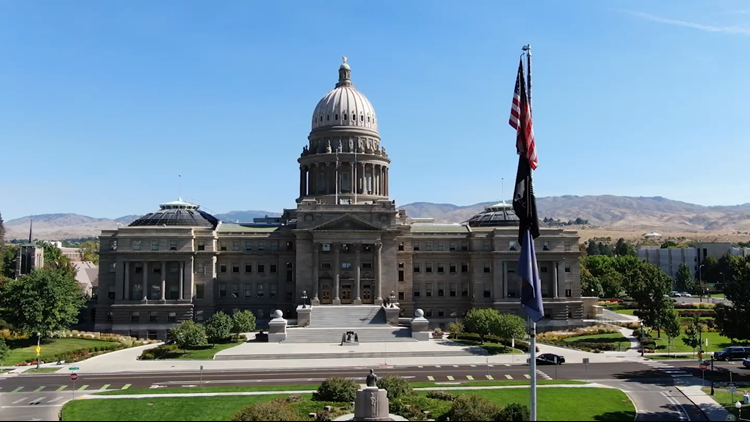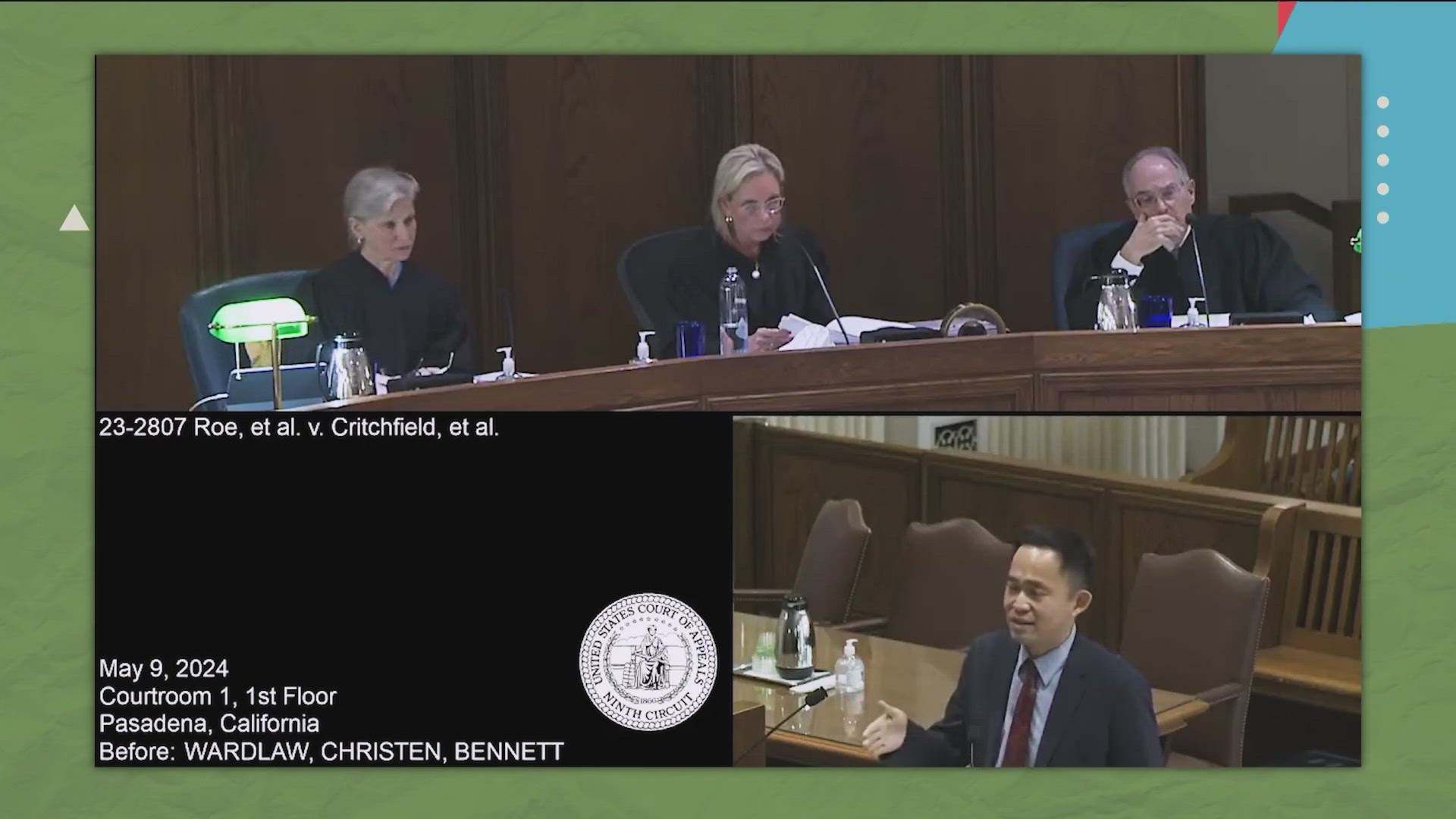BOISE, Idaho — Editor's Note: This article originally appeared in the Idaho Press.
An array of groups representing Idahoans with disabilities has sent an 11-page letter to the governor, legislative leadership, the Idaho State Police and more raising legal and safety concerns about plans for the upcoming Jan. 11 legislative session.
The Idaho Council on Development Disabilities and 30 other organizations signed on to the letter, which says people with disabilities want to participate in the legislative session, but can’t do so safely without proper COVID-19 protocols and measures to deal with armed “uncontrolled angry mobs.”
“Anti-mask and anti-social distancing activism in the Capitol building, including the kind we saw in Idaho during the August 2020 special legislative session, is not a simple political statement or contest for political influence. It is a life-threatening activity for those people with developmental disabilities who need a COVID-19 safe atmosphere to have their voice heard during the public policy decision-making process,” said Christine Pisani, executive director of the Idaho Council on Developmental Disabilities.
“People with developmental disabilities are twice as likely to contract COVID-19 and five times more likely to die from it than the overall population,” she said, citing a Syracuse University study. House Speaker Scott Bedke said Tuesday, “It’s not the first time that people with guns have come into the Capitol. Yeah, during the special session it did get out of hand. We will take measures to not let that happen again, and to try to keep an atmosphere where everyone can come and participate.”
Bedke said he remains opposed to mask mandates; though both Boise and Ada County already are under mask mandates to slow the spread of the COVID-19 virus, the Legislature controls the rules for what happens in its chambers and offices. “It’s not going to be business as usual,” he said. “But I will stop short of making demands on people’s behavior.”
The letter from the disability groups raised legal issues including the applicability of public health orders to public spaces within the Capitol; violations of public nuisance laws; and violation of the Americans with Disabilities Act. It also cited laws prohibiting private militias, including an existing law making it a felony assemble to train with weapons “with the intent to employ such training, instruction or practice in the commission of a civil disorder.”
Ammon Bundy’s “People’s Rights” group announced last week that it would be conducting weapons training with its members to prepare for “the force that is evident to come upon us.” Bundy’s group and another organization, Health Freedom Idaho, led the protests during the August special session, which resulted in several arrests and the breaking of a glass door at the entrance to the House gallery; they oppose mask mandates and other measures prompted by the COVID-19 pandemic. Bedke said, “We have made a lot of investments in the technology in the building so that every member of the public will have better access to the goings and comings of the legislative process.” Legislative committees may be able to take some remote testimony with that new technology, he said, but legislative rules leave that to the discretion of the committee chairman.
“If that’s not enough, I guess they can take their issues to the court and make their case,” he said. Many state legislatures have been looking to meet virtually instead of in-person in January or delay their legislative sessions until the COVID-19 vaccine is more widespread; Idaho hasn’t changed any of its rules or procedures for the upcoming session. In early December, 104 of the 105 members of the Legislature met in person for a two-day organizational session in the Capitol, many shunning masks or social distancing; the 105th member was out with COVID-19.
Last week, Gov. Brad Little advised lawmakers to consider shifting their session to virtual or delaying it, something House and Senate minority leaders are also calling for. “This building is a pretty good petri dish for transmissible moments of COVID,” Little told Idaho Education News. “I would advise my separate but equal legislative branch to seriously consider it.”
Bedke said, “I appreciate the governor’s concern, but no one has changed the Constitution, no one has changed the dates that we’re to meet based on the Constitution. We’ll just have to see what happens when we get there, I guess.”
“It’s my desire to complete our business as quickly as possible, but without taking shortcuts that leaves our work undone,” he said. A copy of the letter from the disabilities groups went to Idaho Attorney General Lawrence Wasden. His office had no comment Tuesday afternoon.
Betsy Z. Russell is the Boise bureau chief and state capitol reporter for the Idaho Press and Adams Publishing Group. Follow her on Twitter at @BetsyZRussell.
This article originally appeared in the Idaho Press, read more on IdahoPress.com.
More from our partner Idaho Press: Middleton school board reduces quarantine requirement



